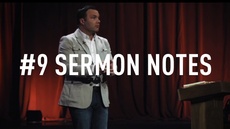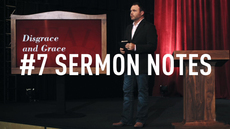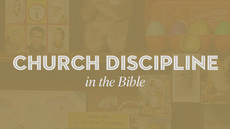From the February 19 sermon “Sex: God, Gross, or Gift?”, preached by Pastor Mark Driscoll:
Before sin entered the world, God created sex for marriage between one man and one woman. People distort this gift and tend to see sex as either god or gross. However, the Bible gives six ways in which sex is a gift from God: for pleasure, children, knowledge, protection, comfort, and oneness. When God tells you to be faithful to your spouse, to practice chastity before marriage, to enjoy fidelity within marriage, what he’s saying is, “I want the best for you.”
Your standard of beauty is your spouse. God does not give us a standard of beauty. He gives us a spouse.
God didn’t go to Adam, “Well, what do you like? Tall, short, white, black, Asian, young, old, long hair, short hair, skinny, formerly skinny? What do you like? What do you like?” He came to Adam. He said, “Aardvark. Eve.” Adam said, “Eve looks amazing. That’s amazing right there.”
Eve’s standard of beauty was Adam. Adam’s standard of beauty was Eve.
Marketing, pornography, coveting, lust—what Jesus calls “adultery of the heart”—is having a standard of beauty other than your spouse, comparing your spouse to them, becoming dissatisfied, and then ultimately becoming an adulterer; if not just in your heart, also with your hands.
If we don’t get our information from the Word of God, we will get it somewhere else, and it won’t lead to life; it’ll lead to death.
The Bible gives six ways in which sex is a gift from God. Number one, it’s for pleasure. Right? I mean, pleasure is not bad. Some of you, you’re way too worried about pleasure. And some of you think, “Pleasure could lead me to sin.”
You know what? Pleasure could lead you to worship, too. And I would encourage you, don’t go for shallow, lesser pleasures. Go for the deep pleasures, the desires of God.
The Bible says that, “Pleasures are in your right hand, Lord God, forevermore.” That’s what the psalmist says. Pleasure is not a bad thing. It can be a gift that God gives. [. . .]
Number three, it’s knowledge. Genesis 4:1 says that Adam lay with his wife Eve, and he knew her. There’s a knowledge. There’s an intimacy. There’s a trust that’s built between a husband and wife that is sacred. You trust, and know, and love, and enjoy one another in a way that nobody else knows you. [. . .]
Number six, it’s for oneness. Genesis 2:24 says that the husband and wife were one, and they were naked without shame. And that word in the Hebrew is echad, and it’s the same word that’s used in Deuteronomy, and the Orthodox Jews would say it three times a day: “Hear, O Israel, the Lord our God, he’s one.” Like God the Father, God the Son, and God the Spirit are one, in a similar way—not completely identical—a husband and a wife, who are intimate in covenant, they’re one. They’re one. [. . .]
When God tells you to be faithful to your spouse, to practice chastity before marriage, to enjoy fidelity within marriage, what he’s saying is, “I want the best for you. I want you to be one with your spouse. I want you to be connected theologically. I want you to be connected emotionally. I want you to be connected mentally. I want you to be connected financially. I want you to be connected biologically. I want you to increasingly grow to be one.”
“As a single man pursuing Jesus, what is the best way I can prepare for the day God brings my wife into my life?”
That’s a great question. Why don’t you take that one first, and then I’ll pick it up. Single guy pursuing Jesus, and he wants to get ready to be married someday. It’s a good question.
Grace: Well, much of marriage is serving and being selfless, instead of selfish, so continue to work on your relationship with Jesus, but extending that beyond that and serving: serving children, families, women in the church, whatever ways you can find to serve and just growing that serving gift and learning how to not be selfish.
Also, like you’ve talked about before, we, men and women, tend to make a list of what we want in a spouse, but making a list of who you see God wants you to be, prayerfully, as a spouse someday, what gifts you have, what characteristics you have, and putting those down and seeing how you can continue to grow in those, so that you can serve your future spouse.














